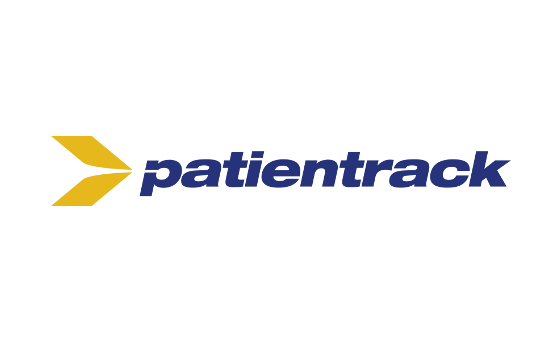 The ambitions of NHS Digital’s e-nursing week and the Royal College of Nursing's (RCN) 'Every nurse an e-nurse' campaign are being realised by nurses across the UK, who are seeing the benefits of using digital health on the frontline by using Patientrack, a technology used by nursing staff to capture patient vital signs and alert doctors when urgent attention is needed, as well as significantly reduce the time spent completing paperwork that takes nurses away from direct patient care.
The ambitions of NHS Digital’s e-nursing week and the Royal College of Nursing's (RCN) 'Every nurse an e-nurse' campaign are being realised by nurses across the UK, who are seeing the benefits of using digital health on the frontline by using Patientrack, a technology used by nursing staff to capture patient vital signs and alert doctors when urgent attention is needed, as well as significantly reduce the time spent completing paperwork that takes nurses away from direct patient care.
Patientrack's electronic observations technology is helping improve nursing clinical workflow in hospitals across the country, where nursing staff agree that the ease of use of the software, together with the support that Patientrack offers, is empowering nurses of all ages to use technology to help improve the patient experience, and ensures that essential information is available and shared in real time across the patient journey.
Matron Richard Cox from the acute care team at Central Manchester University Hospitals NHS Foundation Trust (CMFT), is a nursing advocate of Patientrack. He noted in a case study on how nurses are using Patientrack: "The software, and the approach to care it helps deliver, are becoming much more integrated with our clinical systems and practice. We can now see nurses of all technical abilities use technology to realise benefits for their patients."
Student nurses are also seeing the benefits. The University of Manchester is training its student nurses to record patient observations using Patientrack. Carol Wilde, a former A&E matron, who is now the clinical skills tutor at the university's School of Nursing, Midwifery and Social Work, said learning how to accurately record a patient’s vital signs and carrying out patient observations is "the bread and butter of nursing practice".
She said: "As the NHS becomes paperless, we need to give students a real feel for the systems they will use. Introducing Patientrack into the classroom was the only way to do this, something no other nursing school has done."
Donald Kennedy, managing director at Patientrack, welcomed the moves by NHS Digital and the RCN to promote the use of technology-enabled nursing care. "We offer our wholesale support for these initiatives, which build on the pioneering work of nursing staff across the country. By providing nurses with the right tools to help them do their jobs, we have seen first-hand how nurses can become e-nurses and embrace technology to provide better patient care. Through digitisation, we can reduce the burden of paperwork, release time to care, and create new electronic data for many purposes."
Nursing staff at Whiston Hospital in St Helens are using Patientrack technology on their acute wards, which is helping them show marked improvements in patient care. Nurses showed have said how swapping pen and paper for mini iPads has cut high risk admissions to critical care, eased pressures on emergency teams, and reduced the amount of time spent recording patient observations by two thirds through the introduction of early warning and alerting technology.
"This is allowing nurses and other clinicians to spend more time with their patients, and focus on those most in need," said Rowan Pritchard-Jones, a consultant plastic reconstructive surgeon. "A culture shift is underway."
Ward manager Steve Riley was involved with choosing Patientrack for Whiston. "If we're cutting down by 5-10 minutes the paperwork we have to do, that's 5-10 minutes more time we can spend with the patients. As a nurse, that's what we want to do," he said.
The use of Patientrack by nurses at NHS Fife saw the Scottish health board scoop an EHI Award in 2016, for best use of IT to promote patient safety, and nurses in Basildon and Thurrock University Hospitals NHS Trust are using the system to deliver improved patient care. Sam Neville, clinical informatics lead nurse, said electronic observations has had a big impact on patient care. "The system picks up on any changes in the patient's condition and alerts staff to anything unusual. Medical emergencies for patients within the trust have dropped as a result," he said.
Nurses at the Bolton NHS Foundation Trust are also using Patientrack. The system supports the trust’s Hospital at Night processes and task management, including logging more quickly when patients need a doctor's attention for anything from chest pains to compromised airways, seizures, high early warning scores, and a wide range of other urgent and less urgent tasks.
About Patientrack
Patientrack helps hospitals deliver safer care - which is also more cost-effective care - by ensuring observation and assessment protocols are carried out correctly and consistently, and by automatically calculating early warning scores and alerting clinicians when interventions are needed. Through early identification of deteriorating patients, and the promoting of necessary assessments, Patientrack helps hospitals meet national and local targets for improvements in patient safety, improving patient outcomes and supporting frontline staff, while at the same time cutting costs and reducing paper. Patientrack was developed in conjunction with health professionals and its effectiveness in delivering both patient safety and cost improvements has been proven in a peer-reviewed clinical journal.